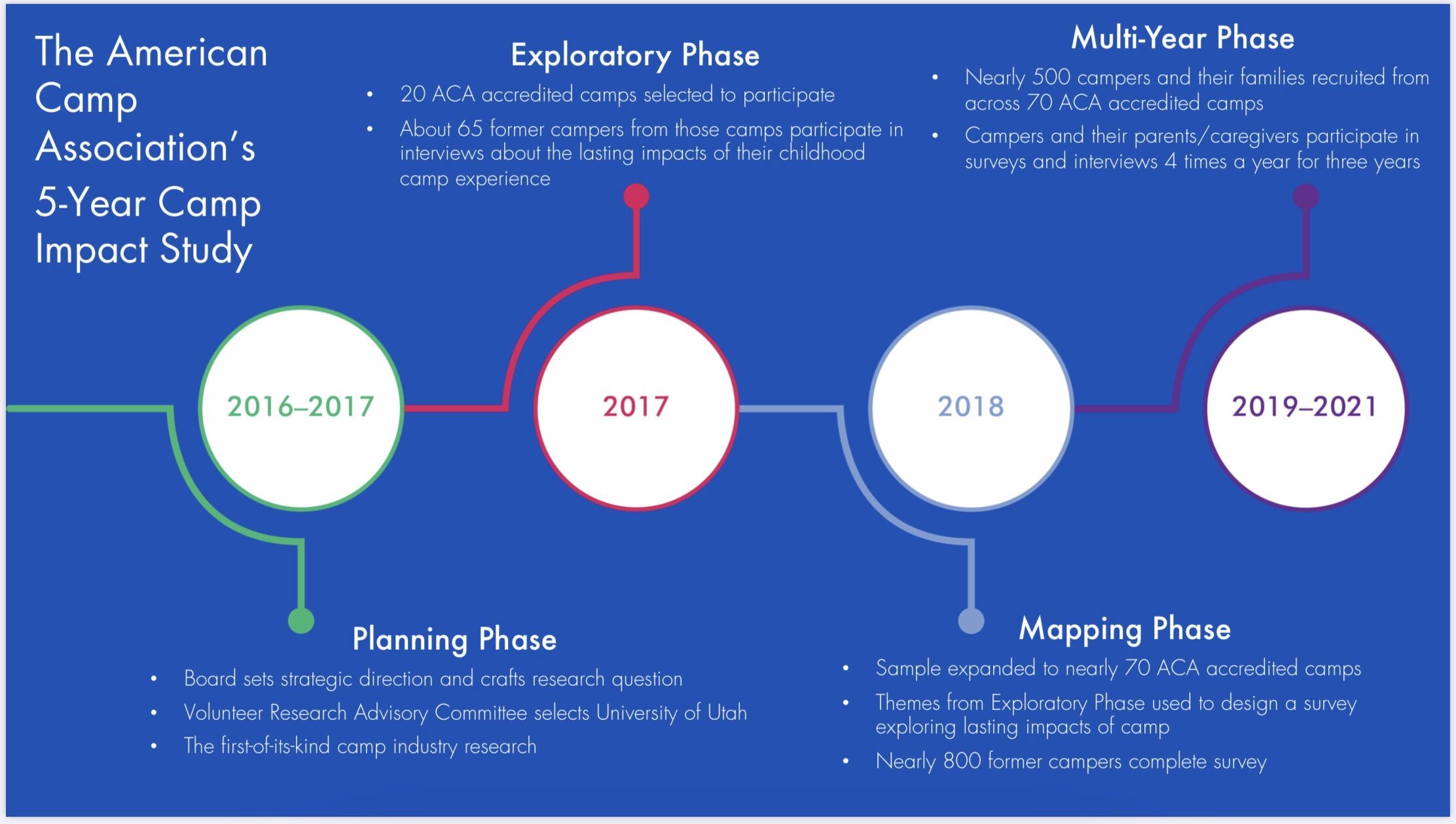The Positive Impact of Camp Experiences: American Camp Association Research
Listen to Episode 87 of the Sunshine Parenting Podcast: The Impact of Camp Experiences with Dr. Laurie Brown.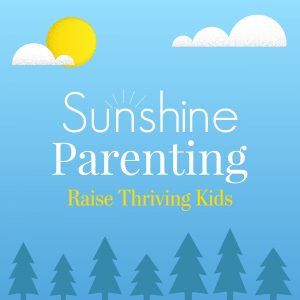
In this episode of the Sunshine Parenting Podcast, I interview Dr. Laurie Browne, Director of Research for the American Camp Association, about the five-year camp impact study being done by an external research team through the University of Utah. The study explores the lasting impacts and the ways camp experiences prepare young people for college, their careers, and their lives beyond camp.
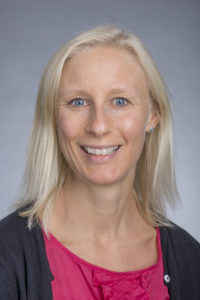
I hope you enjoy this conversation with Laurie and learn more about the incredible research that’s finding that camp truly does have an amazingly positive impact on the development of young people.
BIG IDEAS
- The ACA wants to make sure that camps thrive into the next century and that they serving more campers and in better ways.
- The heart of this five-year study consists of three major components: the youth, the staff, and leadership development. Its objective is to determine the lasting impacts of camp and the interplay between camp, school, home, and future jobs. Through this study of over 500 families, they will identify camp’s role in the “learning landscape”.
- The data collection and analysis is being done by an independent research institution outside of the ACA through the University of Utah.
- We discuss:
- the outcomes and benefits for parents who prioritize camp.
- the importance of having other adults to mentor our children, especially the positive influence of camp counselors.
- what families and schools can learn from camp
- having campers reflect on what they learned at camp so they can apply it to real life situations.
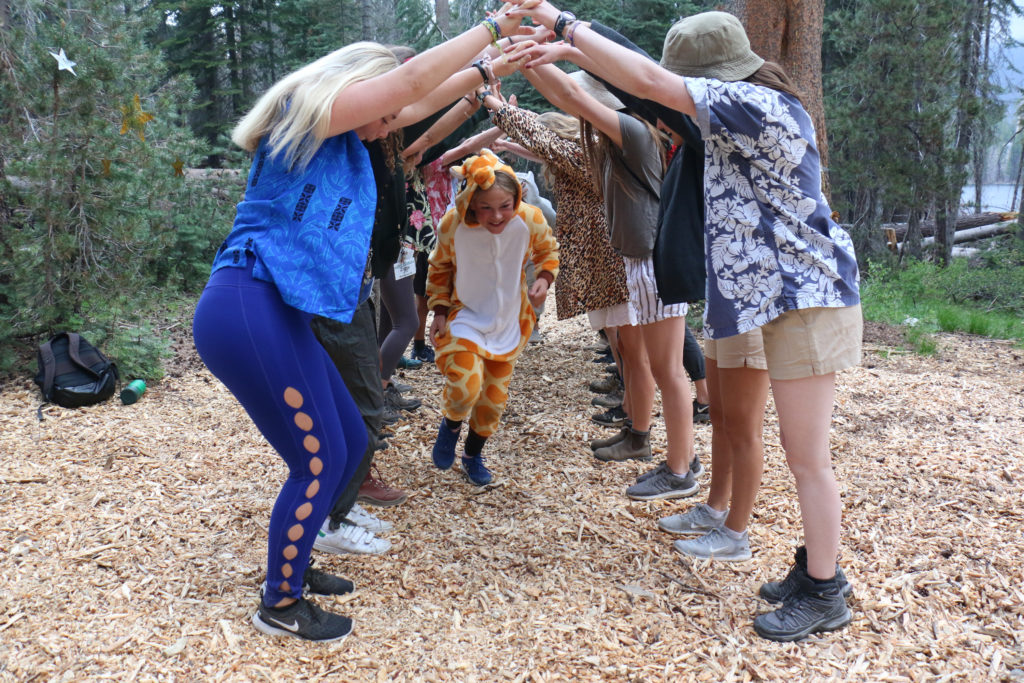
QUOTES
LAURIE: “This is a multi-layered study which builds off itself, starting with qualitative approaches, interviews, and surveys. Then the findings were quantified and a longitudinal study was designed which is tracking campers and their families over time.”
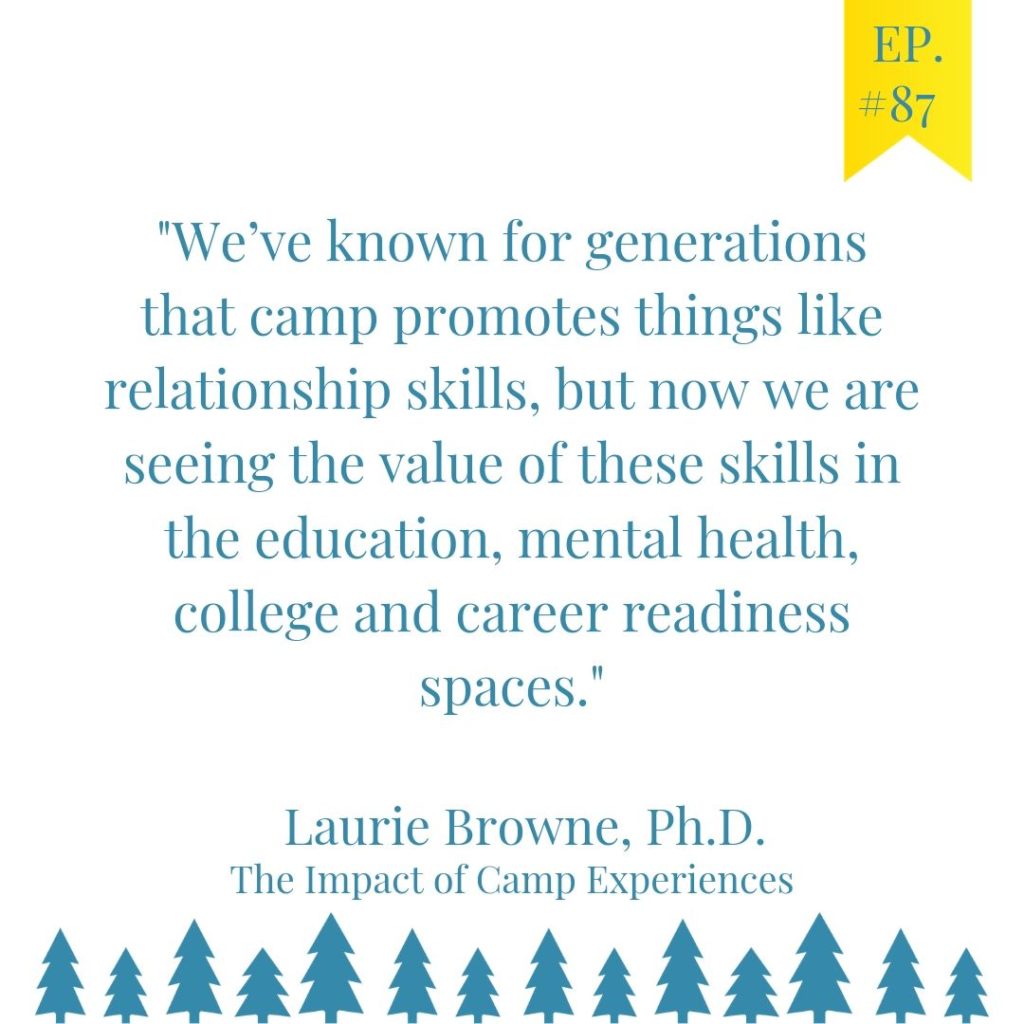
LAURIE: “We’ve known for generations that camp does great things for kids. But I think the environment is far more ready for the type of social, emotional learning related outcomes that camp provides. We’ve known for a hundred years that camp promotes things like relationship skills, but only now we are seeing in the education, mental health, college and career readiness spaces, the value of relationship skills. We have employers saying that is the number one skill they expect in college graduates. That is harder and harder to find.”
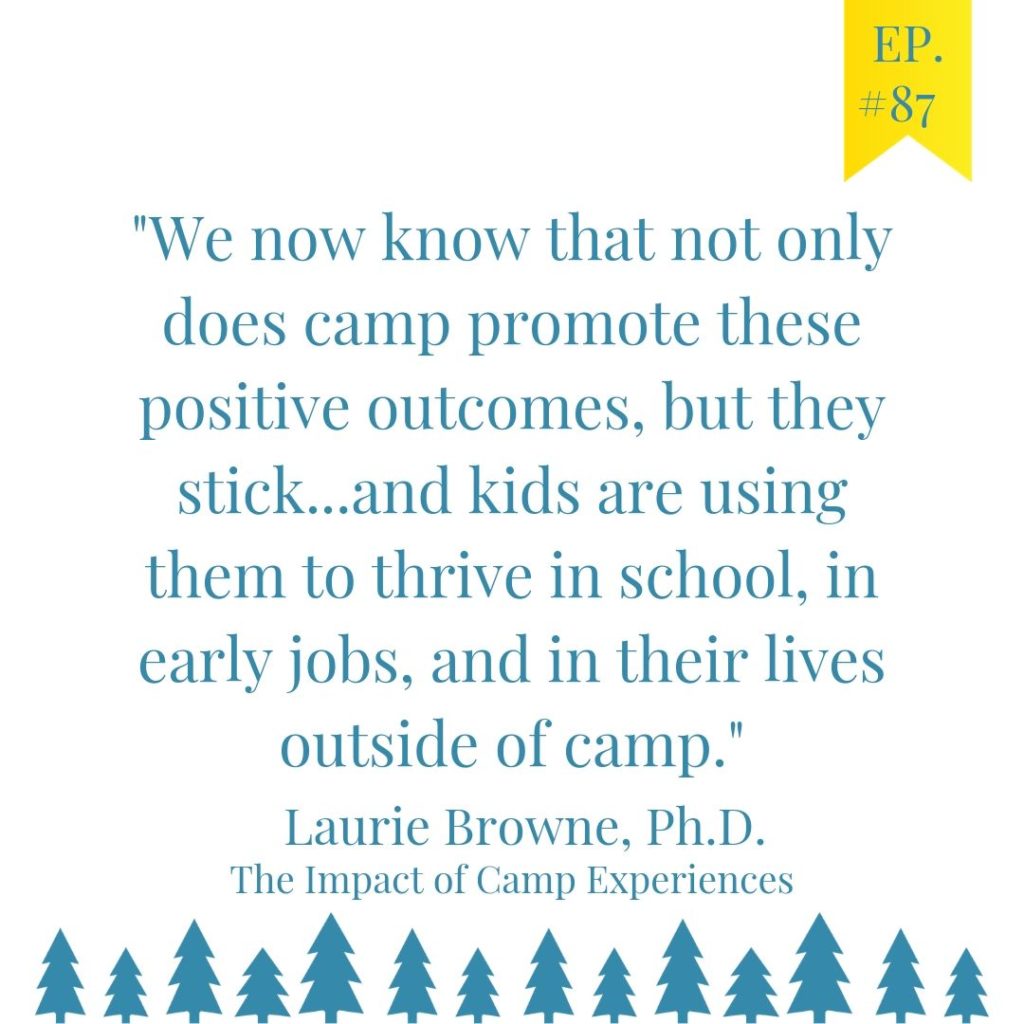
AUDREY: “Other places (school, sports) have another focus that is their most important priority (academics, sports skills) but at camp, our number one focus is on the community building, the cultural building, and training our counselors to facilitate friendships and relationships among campers.”
LAURIE: “It all layers on top of one another, the interplay between camp and school and home. All the spaces work together to create a thriving, successful child. And now we know that camp plays a very unique—even critical—role in that overall landscape.”
LAURIE: We’re interested in the family dynamic around camp. How do families choose to go to camp? How do they integrate camp with the other things in their lives? (In this study) parents are emerging as beneficiaries and have their own outcomes relating to camp. We’re specifically having parents share with us the value and benefits to them of sending their kids to camp, day camp and overnight camp. Parents are recognizing that kids come home and in many cases, are more active citizens in the family. So it improves family processes when they send their kids to camp. But specifically, in overnight camp experiences, parents are saying, ‘I’m a better parent. I get some time to connect with my partner, to engage in some of the things I don’t always get to do when I am busy caretaking.’ Then when the kids come back, they are really happy so as a family unit, it brings all kinds of benefits to parents as well.”
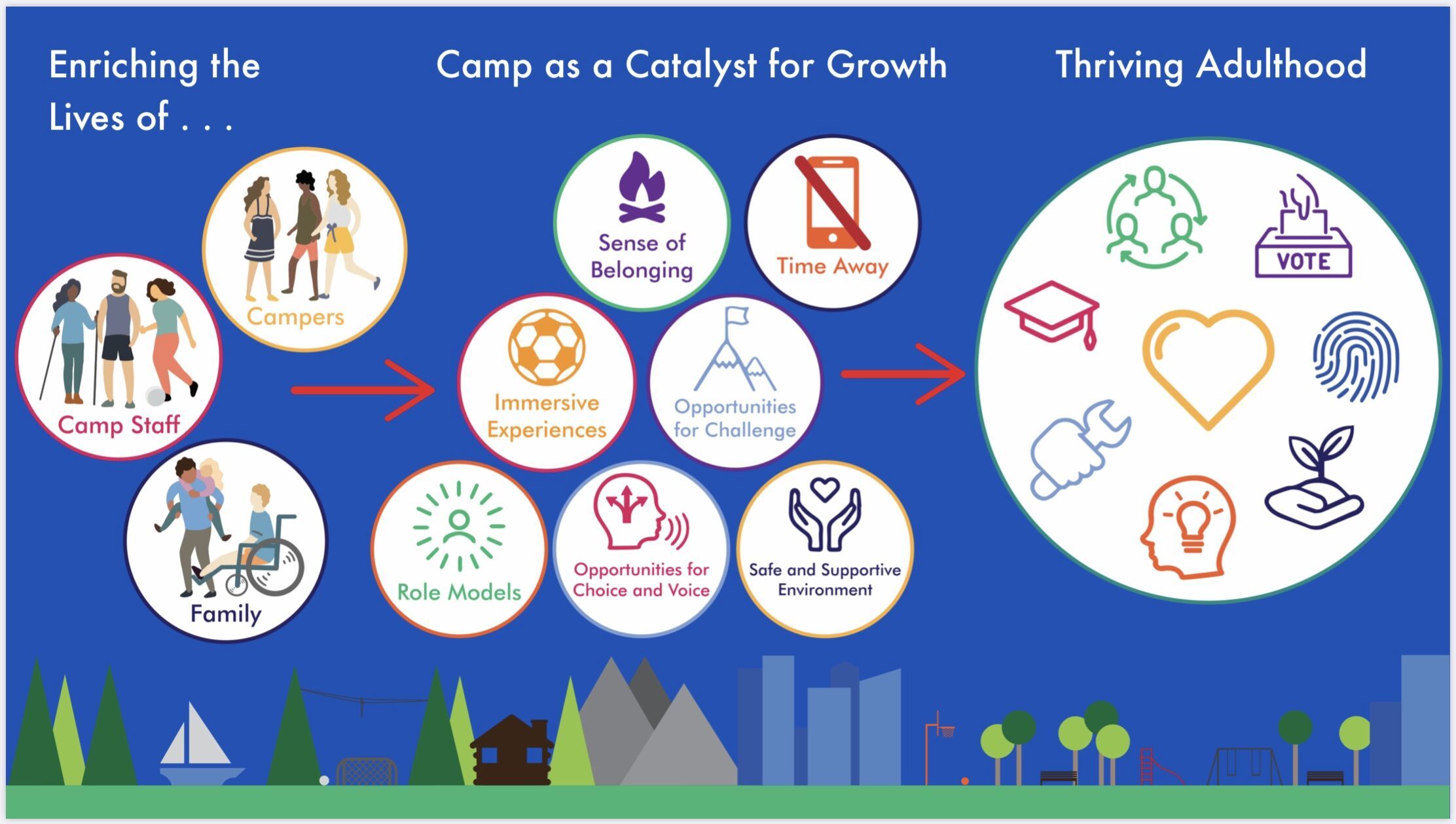
AUDREY: “I’ve heard from many parents that it’s almost a relief to know their children are being taken care of. They can relax. They don’t need to be monitoring, following, texting. It’s a much-needed break for parents who feel so much pressure to be so involved with everything. For so many parents who are working and taking care of kids, their lives are so full that what often gets neglected is their own well-being and what brings them happiness.”
AUDREY: “I tell parents to use the time when their kids are at camp to have their own ‘camp’ type of well-being experience: be with your spouse, your friends, do hobbies that you don’t normally have time to do, so that when your kids come home and have all these great things to share about what they’ve done, you can share, too.”
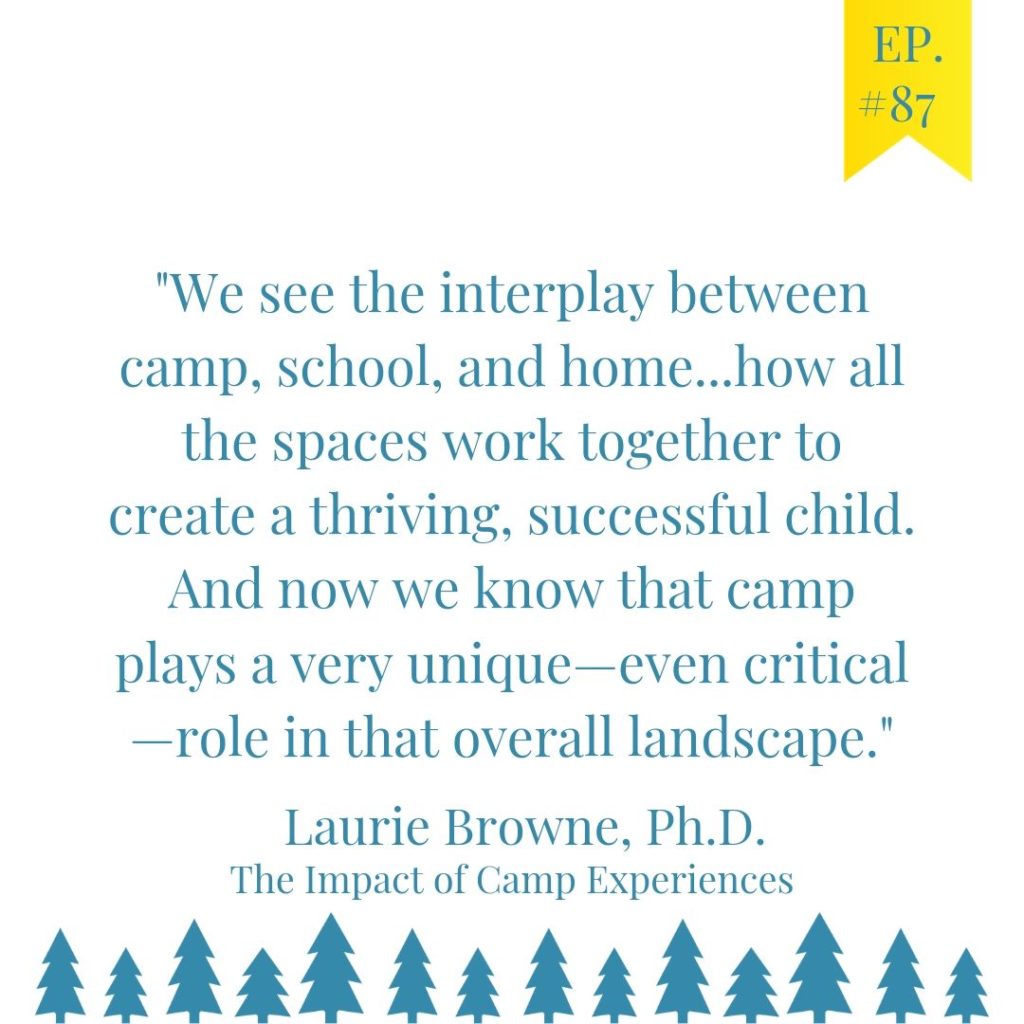
LAURIE: “We have to cultivate happiness by doing things other than work and caregiving. It’s an investment in our own well-being and we are better parents when we make that investment. I think as mothers we feel really inclined to set aside our well-being for our kids. But now there’s so much dialogue around the importance of our time away from kids and to know that your child is thriving because they’re apart from you, is literally one of the findings we are seeing.”
LAURIE: “The opportunity for kids to practice a sense of independence and from that, they can develop a true sense of responsibility and not just that they do their chores but they see themselves as a responsible contributor to their family, to their community and they get to practice that at camp. There are benefits to campers and parents.”
AUDREY: “Even if you don’t send your kids to camp ever, it’s important to find other adults who can mentor your kids because there are some things that your kids either won’t do with you there or will be more tentative about trying. It’s okay for parents to know that you’re not supposed to be able to teach your child everything. That’s why you have teachers at school, sports coaches, camp counselors…So much of who my kids are is because of these amazing role models. How fun for them to get to learn from and interact with other adults. That’s the other lesson that camp can provide for parents: You don’t have to feel like you’re alone in this.”
LAURIE: “Camp counselors are simply younger and more relatable than a lot of the adults that kids encounter in other spaces of their lives. That closeness in age is a really critical opportunity not just for mentorship but for kids to see themselves as an emerging adult. Camp counselors seem attainable. Our staff members are the ones that are really modeling these outcomes, facilitating opportunities to learn and helping those outcomes to stick over time.”
AUDREY: “I think parents looking at camps need to know that you don’t need a fancy facility or fancy equipment. It really is all about the camp counselors—how they treat kids and how focused they are on the kids as their top priority.”
LAURIE: “A culture of caring, a culture of inclusiveness, a culture of belonging is created by all the people combined. We have staff, and then we have campers, but you put all of them together with the traditions and the norms of camp and that creates a culture that in and of itself is so powerful as a mechanism for lasting learning. It’s about intentional culture building around care, safety, and inclusiveness—it’s really what matters.
LAURIE: “What a great opportunity to practice being a member of a community that isn’t their family—especially in adolescence. As kids grow up, they have to be able to see themselves in worlds outside of their homes. That’s a critical part of their developmental process.”
LAURIE: “Kids are making connections between camp and home and school. What a great opportunity for parents, educators and camp professionals to help bring more visibility to those linkages. Help campers identify the connections between them.”
AUDREY: “We have kids reflect before they leave camp about what they’re going to bring home with them. We ask them, ‘what have you learned here that you’re going to use in your life’ and it’s amazing to hear them articulate what they’re going to take back. They learn these great things but they need to take the time to figure out how they’re going to translate this to the rest of their life, the other weeks of the year beyond camp.”
LAURIE: “Research is exciting, but it really doesn’t matter near as much as what really amazing camp professionals are doing with campers and staff. That’s where the magic happens.”
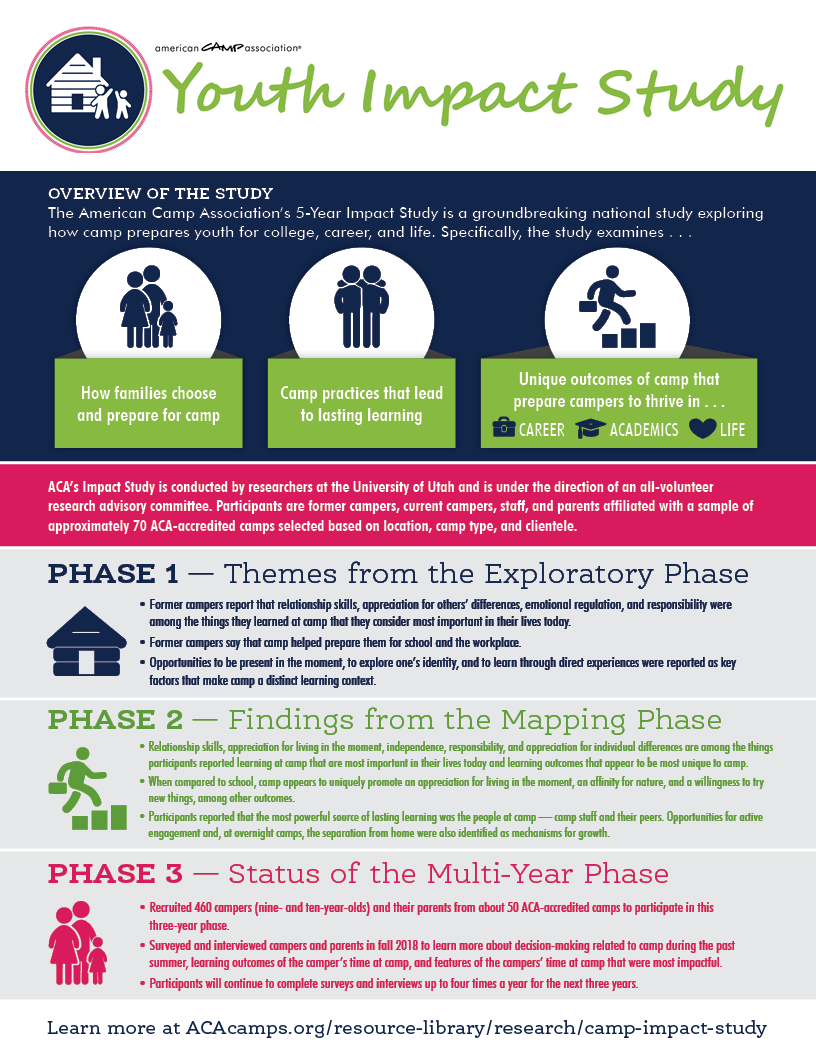
LINKS
Susan Pinker– The Village Effect Ted Talk
RELATED POSTS/PODCASTS
Research finds Children Learn Social Skills at Camp
Ep. 32: 10 Benefits of Summer Camp for Teens
Podcast originally published at Sunshine Parenting.
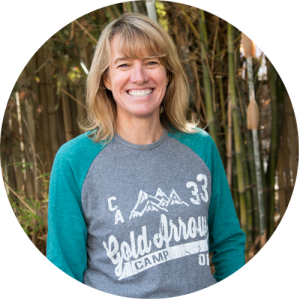
Audrey “Sunshine” Monke, MA, has been the owner of Gold Arrow Camp since 1989 and currently serves as the Chief Visionary Officer. In addition to her vision-casting and mentoring at GAC, Sunshine is an author (Happy Campers: 9 Summer Camp Secrets for Raising Kids Who Become Thriving Adults), podcast host, speaker and coach on the topics of parenting, social skills, and happiness. Find out more at her website, Sunshine Parenting.
Visit Sunshine Parenting for more summer camp-related posts & podcast episodes.
4 Reasons Not to Worry While Your Kid is at Camp
Listen to Sunshine Parenting Podcast Episode 91: 4 Reasons Not to Worry While Your Kid is at Camp.
Worrying when our kids are away from us is normal for parents. Every time I’ve ever dropped my kids off for a new adventure without me, I’m excited for them. But I’m also concerned about their safety, secretly wishing they would just STAY HOME, then counting the days until they return. I know it’s not rational (few things about parenting are), but I believe my kids are always safest when they’re home with me.
If you are new to sending your kids to summer camp, let me reassure you that while they are away, you can relax your worrying muscles. I’ve spent more than three decades working at a summer camp, sending my kids to other camps, and participating in the networking and training of summer camp professionals. I know A LOT of camp directors, have visited many camps through the American Camp Association accreditation process, and am a faithful reader of Camping Magazine. I definitely know about camp.
In Episode 91 of the Sunshine Parenting Podcast, I chat with my longtime friend, Camp Owner/Director Maria Horner. Maria and her husband, Tom, have been the executive directors of Catalina Island Camps since 1995. In this episode, we discuss four reasons not to worry while your child is at camp.
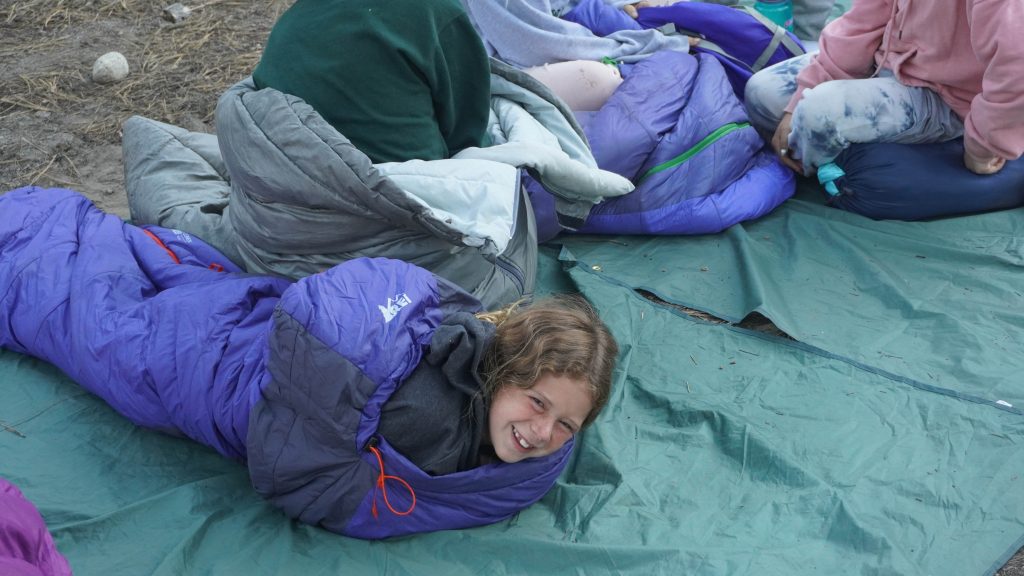
Reason #1: Accreditation from the American Camp Association
You have chosen a camp program that’s accredited by the American Camp Association. This means that the camp meets the ACA’s high standards to ensure a safe and nurturing environment for your child.
Reason #2: Your Communication with Camp
You have been in touch with the camp director. Always be upfront with any issues your child may be dealing with so that the staff can be prepared to help them. Take time review at all the material that the camp has sent you ahead of time and phone them with any questions you may have.
Reason #3: Preparation of Your Child
You have prepared your child for the experience:
- You’ve allowed your child the opportunity to sleep away from home with adults other than parents.
- You’ve reviewed the materials from the camp with your child.
- You’ve packed for camp together so they know what they are bringing with them.
- You’ve talked to your child about camp, focusing on the fun. Develop strategies with your child to address anything they may be feeling nervous about.
- You’ve expressed confidence in your child. Say, “I know you’re going to have a great time and enjoy this!”
Reason #4: Parent Preparation
You have prepared yourself for the experience:
- Manage your expectations.
- Be realistic about contact with your child while they’re gone.
- Don’t over analyze the communication you do get from your child.
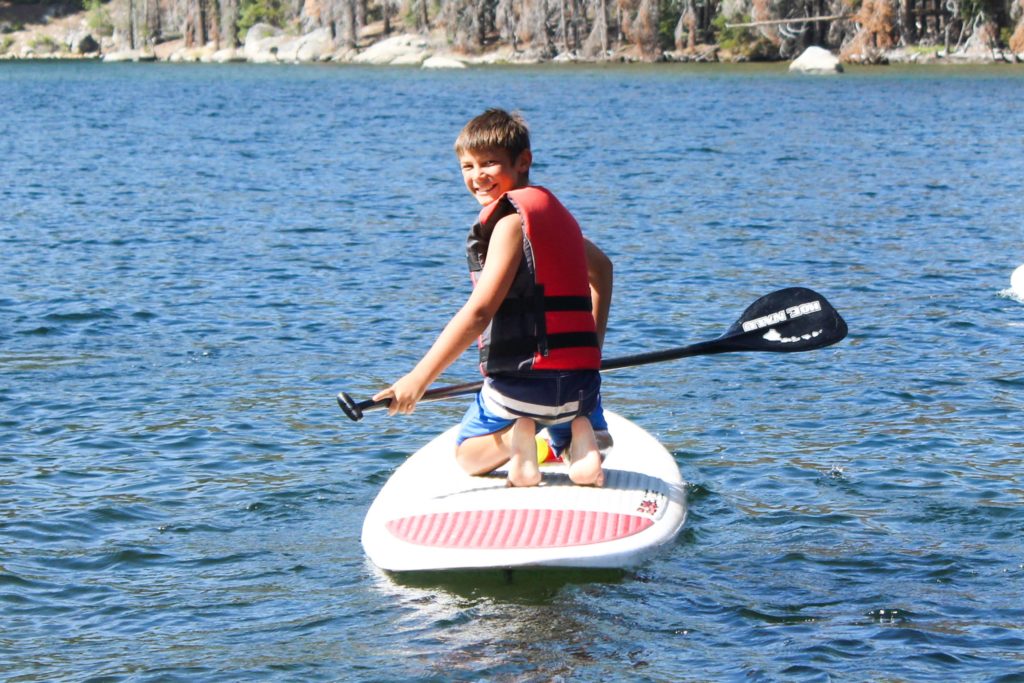
Want more reasons not to worry? Read this Sunshine Parenting post: 5 Reasons NOT to Worry While Your Kids are at Camp.
Quotes from this Episode
Audrey: “One of the reasons not to worry is actually the amount of training we do with our staff.”
Maria: “You chose an accredited camp, so if you’re coming to my camp, or if you’re going to any other camps in your Happy Campers group, those camps are all accredited by the American Camp Association, which means that those camps care enough to undergo a thorough peer review of its operation. And that includes everything from staff quality and training to emergency management–all things that they’re doing voluntarily to ensure that their program is top notch.”
Maria: “Camp professionals from around the country can volunteer to be what we call standards visitors. So every five years, a team of trained standards visitors go into each accredited camp and observe, both through documentation and practices actually in place, based on the identified standards, to see that the camps are in compliance with all of them.”
Maria: “If you’re going to allow me to take care of your child for two or three or four weeks during the summer, I’d actually think it stranger if you don’t want to talk to me first. I would imagine you would want to know who’s the person in charge of the place where your child’s going to be spending a lot of time. Pick up the phone and actually talk to the person who is running the show.”
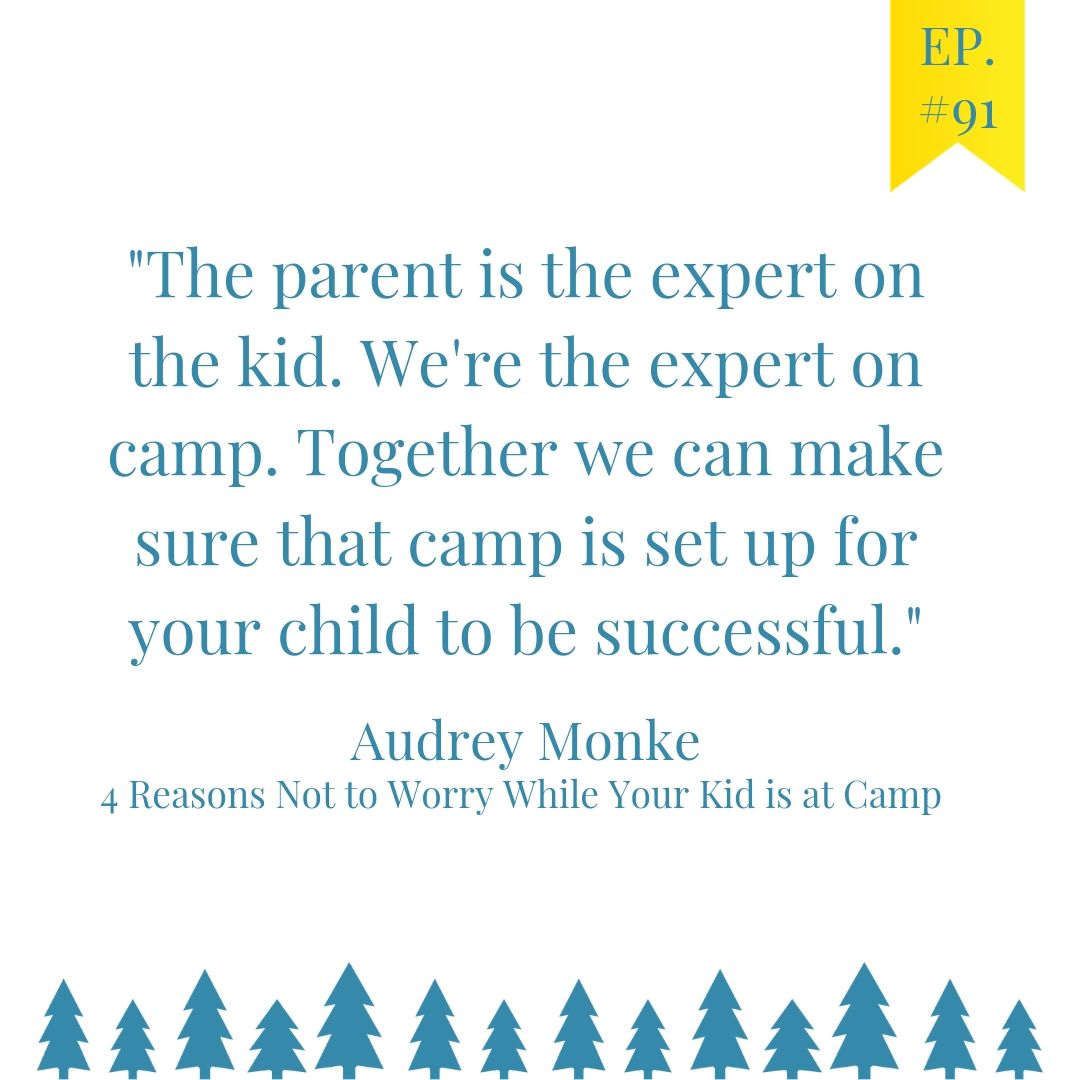
Maria: “I really encourage parents to be as upfront and transparent about your child as possible. We can do a lot at our camp and we can do it way more successfully when we know in advance. If we have to spend a few days figuring out what’s going on with the kid, either socially or behaviorally, or even with their food issues, that’s time lost. If we knew that up front, we would be able to meet those needs right from the very beginning.”
Maria: “Get online and watch videos from camp. Besides our promotional videos, we have a program with our go-pro cameras and the kids make videos every summer. And that’s a great way to get an insight into what camp looks like through the eyes of our campers.”
Maria: “I think you really want to focus on the fun when you talk with your child. I think definitely engage your child in conversation to get a sense of their excitement level and if there are things that they are nervous about, you work together to develop strategies for the child to be able to address those.”
Maria: “It’s okay for me to be nervous, as a mom. It’s not okay for me to project that onto my child.”
Audrey: “What I really want parents to communicate to their kids is: ‘Hey, at camp there are all these adults there to help you have a great experience. So if you need anything and I’m not there, here are some people you can talk to: your counselor, the camp director Maria, the head counselors.’ I think that if you look on the website, or call the camp, you can find out who those people are. I think that empowering your kid to talk to those people is really important.”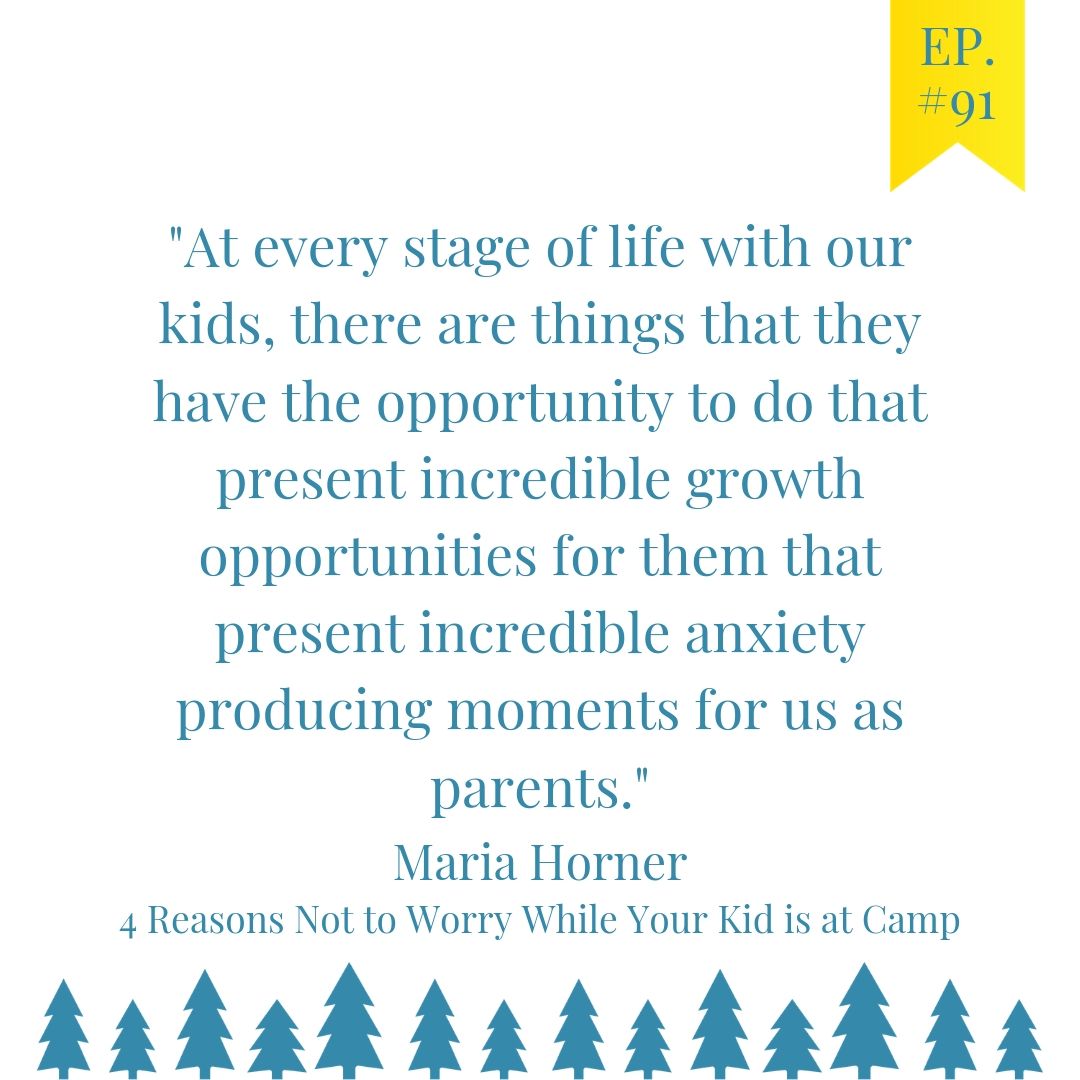
Audrey: “I do think we are very connected with our kids, which is a good thing and close relationships are fantastic. But the dark side is that it makes it a little harder–when your child’s doing something independent from you–for you to have the separation.”
Maria: “One of the things that I often tell parents is to really take advantage of this opportunity. Consider what it means to have some time either just to yourself or for you and your spouse together. That doesn’t happen very often in the craziness of life and raising children.”
Maria: “We tell kids, it’s okay to miss home when you’re at camp. You can miss home and still have fun at camp at the same time. Those two things aren’t in conflict with one another. The same thing is true for the parent’s side. Of course, you miss your child and worry about them. That’s to be expected. And you can still allow them to have this amazing growth experience, even if you’re a little bit nervous.
Audrey: “Give yourself permission to enjoy yourself. Spend some more time on a hobby you haven’t had time for, go out to dinner, go to movies–there’s nothing wrong with that. And actually, you giving your child the gift of a more relaxed, happier parent when they get home from camp is amazing.”
Maria: “It okay to have an incredible experience not all together. It’s okay to let your child do fun things without you and it’s okay to do fun things without them.”
Audrey: “It’s always this kind of mixed bag; you’re excited for your kid when they have some new adventure or get some great job far away, but then you’re also like, ‘Oh bummer. They’re kind of far away.’ I think always keeping these things in mind that it’s okay to have both feelings.”
Resources & Related Posts
5 Reasons NOT to Worry While Your Kids are at Camp
100 Questions about Summer Camp
Why choose an ACA accredited camp?
What are good questions to ask when selecting a camp program?
Ep. 10: Homesick & Happy with Michael Thompson, Ph.D.
Ep. 76: Partnering with Your Child’s Camp Director
Ep. 37: How to Prepare for Overnight Summer Camp
Ep. 87: The Impact of Camp Experiences
How to Raise an Adult, Julie Lythcott-Haims
How Camp Helps Parents Raise Adults
Other Sunshine Parenting Podcast Episodes featuring Maria Horner:
Ep. 22: Jedi Mom Tricks, Part 1
Ep. 33: Jedi Mom Tricks, Part 2
Ep. 42: Jedi Mom Tricks, Part 3
Links
Podcast originally published at Sunshine Parenting.

Audrey “Sunshine” Monke, MA, has been the owner of Gold Arrow Camp since 1989 and currently serves as the Chief Visionary Officer. In addition to her vision-casting and mentoring at GAC, Sunshine is an author (Happy Campers: 9 Summer Camp Secrets for Raising Kids Who Become Thriving Adults), podcast host, speaker and coach on the topics of parenting, social skills, and happiness. Find out more at her website, Sunshine Parenting.

